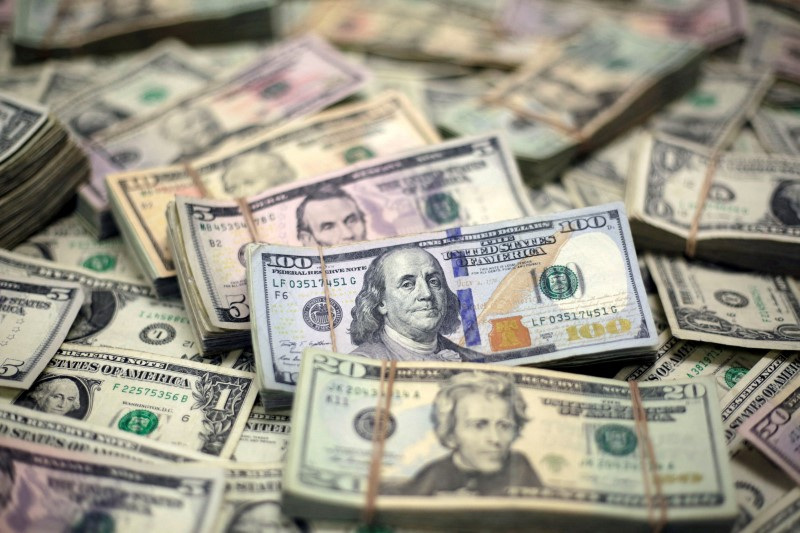By Jamie McGeever
ORLANDO, Florida (Reuters) – Politics is often a major driver of exchange rates in emerging economies where elections, leaders and government policies can play a big role in shaping trade and investment flows. That’s not often the case for major currencies in markets with much deeper investment flows and liquidity – like the U.S. dollar.
But the greenback’s explosive rally following the U.S. presidential election shows that politics still matter for the dollar – a lot. Or more accurately, the dollar is still highly sensitive to political shocks.
The dollar surged nearly 2% against a basket of major currencies early on Wednesday, following Republican Donald Trump’s thumping win over Democrat Kamala Harris in Tuesday’s election.
This marked the dollar’s biggest one-day rise in more than eight years, since June 24, 2016, to be precise. That was the day after another historic, political drama played out: the “Brexit” referendum in the UK, when Britons dumbfounded pollsters and voted to leave the European Union.
Sterling’s 8% plunge on that day – by far its biggest decline against the dollar since the era of free-floating exchange rates began over 50 years ago – lifted the dollar index by 2%.
Trump’s victory was far less shocking than the Brexit vote, and financial markets had been pricing it in for weeks. But the dollar’s sharp reaction suggests that the margin of victory, and the likelihood that Republicans would take control of both houses of Congress, caught markets off guard.
Steven Englander, head of G10 FX strategy at Standard Chartered (OTC:SCBFF), reckoned a potential for “clean sweep” combined with the polarized nature of politics today help explain the dollar’s outsized move.
“So much in politics is ‘same old, same old’, but when you get a real surprise the market reaction can be dramatic,” he noted.
MOMENTUM
The dollar rarely fluctuates anywhere close to 2% in one day because vast flows are required to move such a heavily traded asset that much. The greenback is on one side of almost 90% of all foreign exchange trades, and the global FX market’s average daily turnover is $7.5 trillion.
The dollar has racked up daily gains of around 1.5% since 2016, but they were mostly clustered in the highly volatile days of March 2020 at the onset of the pandemic or in September 2022 when U.S. interest rates were close to reaching their 40-year peak.
Declines of that magnitude have also been rare. They occurred either around the pandemic or when soft inflation data was released in November 2022.
But the 2024 U.S. presidential election, like Brexit, is a reminder that political shocks can still have an instant impact on the world’s more liquid currencies, including the most widely used and liquid of all.
The bigger question may be: Do such extreme moves have long-term effects? And the answer is, they can.
Sterling has never regained its pre-June 2016 heights. It is still down 10% against the dollar and down 25% on a trade-weighted basis, meaning Britain has effectively suffered a permanent loss of global purchasing power.
Of course, the likelihood of the dollar embarking on a near-decade long global rally is slim. Far too many domestic and global variables would have to align for that to happen.
But investors do appear to be pricing in expectations that the new administration’s fiscal and monetary policy will push inflation, bond yields and the dollar higher.
Mizuho’s FX strategy team says the dollar has potentially another 4% of upside before it eclipses its gains in 2016 after Trump won the presidency then.
Barclays (LON:BARC) analysts agree that the dollar has more room to strengthen “either a little or a lot … depending on whether the Republicans manage a sweep”. They believe the later scenario could push the euro down to $1.03 in the near term.
It’s impossible to predict exactly what will happen, but investors are being reminded now that even in such a liquid market, political shocks can still move the dollar.
(The opinions expressed here are those of the author, a columnist for Reuters.)
(By Jamie McGeever; Editing by Cynthia Osterman)




























